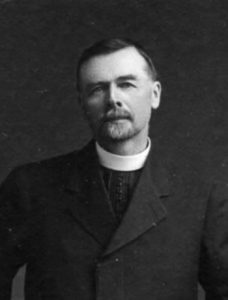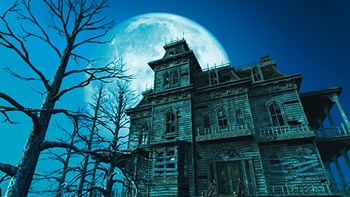A Nightmare and its Consequences

Fr François Delachienne sm, also known as Pā Hohepa and as Fr Delach
From the Golden Jubilee Speech of Fr Delach (3)
Every house in which someone died became tapu, along with everything it contained. So when someone sick started to decline, they would be removed from the house and sheltered under a tent, a tree, or any other place, and they would die there in peace.
René died inside, and without a doubt thanks to me, for if I had not arrived at the last moment, he certainly would have been taken outside. The house was thus tapu, along with its contents, which is why the chieftainess, when inviting me to dine did not say, “Dinner is served,” or, “come eat, you must be feeling weak,” but instead, in a strangled voice, “Come and eat what René had made for you.” She knew that the food was tapu, and that there was the risk of immediate death for any Māori if they ate it. But she served it to me to ward off the tapu while she remained on the correct side of the barricade, for if something had happened to me, she would have said that she had only passed on the wishes of the deceased.
Meanwhile the women had taken René’s body to the lawn in the middle of the village, under a tent, so that the neighbours, relations and friends could come and cry. In this country there is no rush to bury the dead. I have seen some kept for a week, as a sign of affection, and to give the honours due to them.
When I had finished the meal, I went out into the courtyard to observe the preparations which the Māori were making to receive the visitors. I was surprised to see anxiety painted all on the faces. Everyone – men, women, children – had faces as long as rainy weeks, and no one was speaking. I took my breviary and went into the forest to be calm. When I went back in the evening, nothing had changed. I learnt only later that the Elders had held council. They had recognised that the situation was very serious, but that they could not call upon a tohunga because I was there. It was thus up to me to “lift the tapu” from the house. They had heard it said that the bad spirits and spells had no effect on me. They had seen me shrug my shoulders when one spoke of tapu – truth be told, I didn’t know enough about it then – and encouraged by the fact that the tapu food had not even given me indigestion, they decided that in order to reach their goals, and clearly without speaking to me, to have me sleep in René’s bed, and to leave me to fend off the Māori devils and the spells of the tohunga.
After evening prayers, which occurred around 9pm in front of the deceased’s tent, I was getting to ready to go into the communal sleeping house when the chieftainess indicated that I was to follow her. She took me to the door of René’s room, which gave on to the courtyard, and said in a strangled voice, “it will give us much pleasure if you would sleep here.” Tapu crossed my mind like a lightning bolt, but against bad fortune I made good heart and said “yes,” with a smile, but I must admit that if the Māori devils left me indifferent – I had not yet met them – the idea of sleeping in the bed of one recently deceased was particularly macabre.
I entered the room. The silence gave me goose bumps. It was not ordinary silence, the calm which comes from no noise, but a deeper silence, a concrete entity, a manifested reality which could be felt, a silence that nothing could break and which appeared to cover all noise like a large, white shroud, a silence from the other world, which froze the blood.
Moved as I was, I gently closed the door, but the small sound it made immediately took the proportion of a thunder clap whose echoes reverberated against the room’s walls. I understood for the first time that the guardian and vengeful spirits of tapu took their role seriously: the house was haunted. I then understood why the Māori were so frightened of tapu.
As there was no chair in the room, I approached to sit down on the edge of the mattress. Each step that I took made a frightful crack which mixed with the thunder clap from the door. The hubbub was deafening, but when I sat down on the mattress, horrid groans came from it as if I had crushed a legion of devils, but even more impressive, was the horrible ghost-silence of death that enveloped this entire din. 
The situation was untenable, and as usual, I called upon the Holy Virgin and my Guardian Angel and took my rosary beads. I did not have to wait for a response: I had hardly finished the first decade when I fell asleep.
 You may think, sirs, that this is a made-up other-world story. You have all heard of haunted houses – they are everywhere, even in New Zealand. If ever you know of one, and if you have guts go there around 11pm or midnight and try to spend the night there, you can tell me all about it. I urge you, however, do not close the door after you, for fear of not being able to find it again!
You may think, sirs, that this is a made-up other-world story. You have all heard of haunted houses – they are everywhere, even in New Zealand. If ever you know of one, and if you have guts go there around 11pm or midnight and try to spend the night there, you can tell me all about it. I urge you, however, do not close the door after you, for fear of not being able to find it again!
I woke up late the next morning. All was calm, a ray of sunshine penetrated the room and the devils had decamped. I said my prayers, and as I did not have with me what was required to say Mass, I slowly recited my breviary, thinking the day would be long enough to bore me with all the sad faces I had seen the day before. I learnt later that the Māori were very worried not to see me come out of the room, for, in living memory, no one had heard of anyone surviving for more than a few hours if they had violated the tapu of death. The Māori were thinking, if Father is sick or if he is dead, my God what a story! As soon as they saw me come out refreshed and rested, there was a rush to shake my hand. All the faces were radiant, for the tapu had been lifted from the house. But no one asked me if I had slept well. They had confidence in me as priest, their confidence had been rewarded, and the Catholic religion which profited from it. Let’s stop here.
Thank you once again, sirs, for the expression of your good feelings towards me. You have made this one of the best days of my life, a day which I will remember into eternity. As for my story, I beg to you believe that on mission, reality is always stranger than fiction.
For two thousand years Our Lord has called us to all devotions, with all good will, to go and cultivate the vine. I was just 24 years old when I responded to His call and I was given a small corner of His field in New Zealand. I stayed there until I was 52, when ill-health had already made me a useless servant. But I must tell you, as far as I am concerned, in the sunshine of God and under the standard of the Virgin, there is not in the world a life more varied, more eventful, or more interesting, in spite of its fatigue and its disappointments, its shocks and its stories of tohunga, or rather because of all of that, than the life of a missionary. If I were given power to express a desire, it would be to return to the age of 24 years, and it would be to start all over again.
 Entries(RSS)
Entries(RSS)